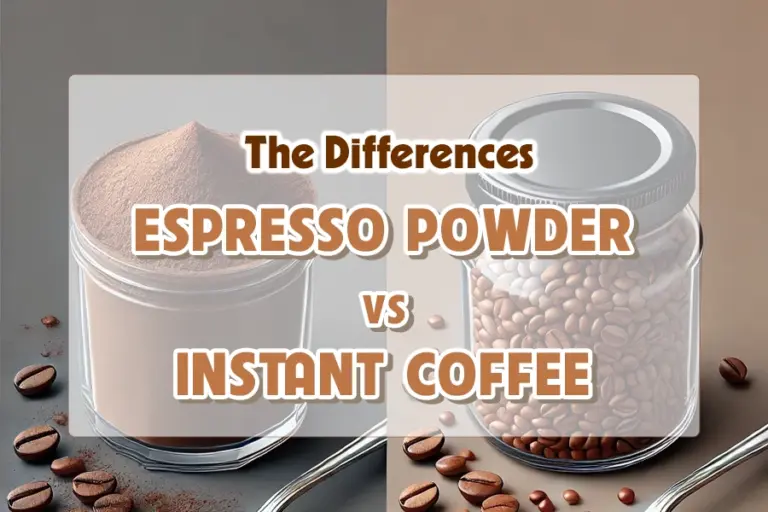How Much Caffeine In 3 Shots Of Espresso? A Quick Guide

One of the most widely consumed beverages in the world today is coffee. According to statistics, up to 62% of Americans drink coffee every day. Coffee will help you wake up and provide energy for a long day. However, do you know how much caffeine is in the cup of coffee you enjoy every day? And if you are a triple espresso enthusiast, how much caffeine in 3 shots of espresso?
All will be revealed in the following article. Let’s learn about the amount of caffeine in Espresso and the difference in caffeine levels between types of coffee!
How Much Caffeine in 3 Shots of Espresso?
Surely when you search the Internet for the amount of caffeine in 3 shots of espresso, you will get many different numbers. So what is the correct answer? On average, a shot of espresso (about 1 ounce) will contain about 63 mg – 75 mg of caffeine. Therefore, 3 shots of espresso will have a caffeine level of approximately 189 mg – 225 mg of caffeine.
However, the exact answer depends on many other factors such as coffee beans, brewing method, roast level, grind size, or water matters. In fact, the amount of caffeine in an espresso shot can range from 30 to more than 100 milligrams. In addition, variations of espresso can also affect the caffeine level. For example, decaf espresso will have a lower caffeine level than regular espresso. Meanwhile, Ristretto Shot has a higher caffeine level than regular espresso because it is a more concentrated version of the standard shot.
If you’re a big fan of triple espresso, don’t worry too much about the caffeine content. Whether it’s 189 mg or 225 mg, the caffeine content in three shots of espresso is still within the FDA‘s recommended daily caffeine intake range (about 400 mg for adults).
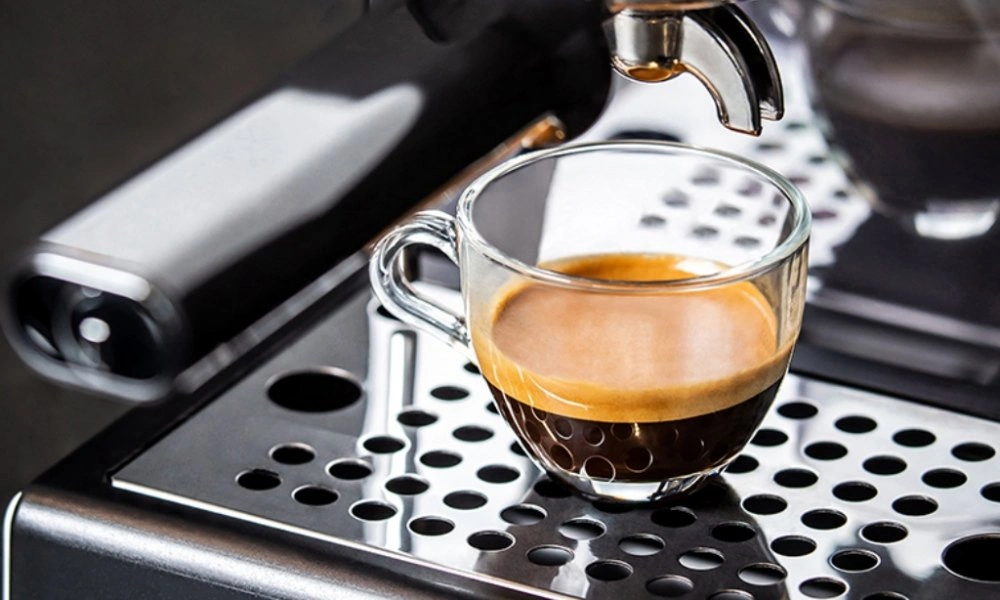
What Affects Caffeine Levels in Espresso?
So why is there such a difference in the answer to how much caffeine in 3 shots of espresso? Let’s find out the factors that affect caffeine in espresso with Coffee Espresso!
Bean Factor
The type of coffee bean is one of the primary determinants of espresso’s caffeine level. The caffeine content of each type of coffee bean will vary. For example, Robusta beans have twice the caffeine content of Arabica beans. Coffee beans grown in different conditions will also have different caffeine levels. Coffee beans grown in mountainous areas, cool climates, or mineral-rich soil will have higher caffeine levels.
Roast Level
The roast level of the coffee beans will also determine whether the espresso will be low or high in caffeine. The coffee beans’ caffeine content decreases with increasing roasting time. As a result, compared to a dark roast, a light roast will have more caffeine.
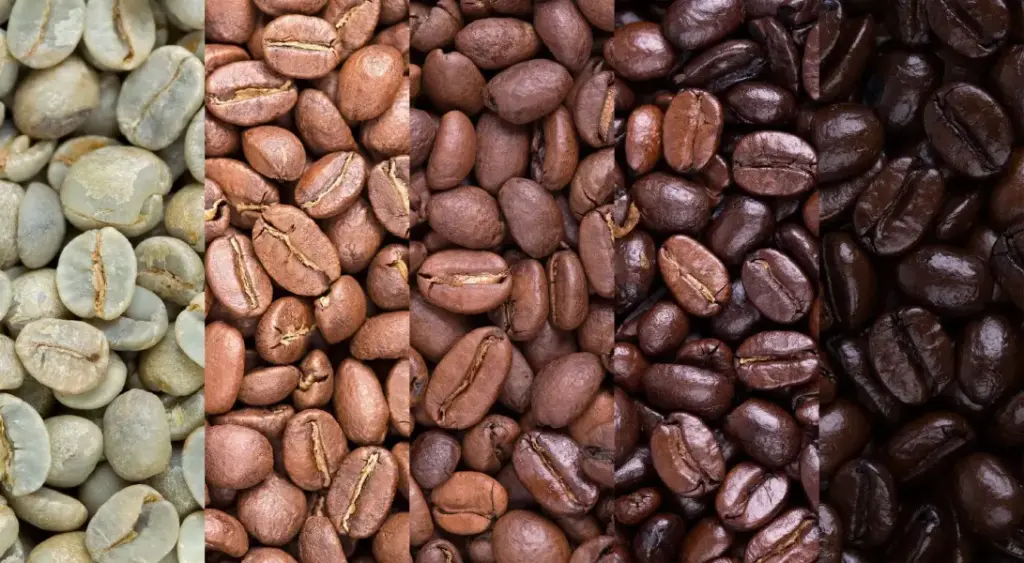
Grind Size and Tamping
The third factor that affects how much caffeine in 3 shots of espresso is grind size and tamping technique. The finer the grind, the more caffeine in the espresso. When the coffee beans are ground finely, the contact area between the coffee and water will be larger, helping to shorten the extraction time and retain a higher amount of caffeine.
Tamping is the technique of pressing the coffee grounds into the portafilter before making espresso. The tamping technique will affect the compression of the coffee grounds in the portafilter and the way the water flows through the coffee grounds. If the tamping technique is not correct, it will affect the way the water flows through the coffee grounds and reduce the amount of caffeine in the espresso.
Water Matters
Last but not least is the water factor. Water greatly affects the amount of caffeine in your espresso. When espresso is brewed with high-pressure water, it will help extract caffeine more effectively. Water temperature also affects the amount of caffeine in espresso. Hot water will help extract more caffeine.
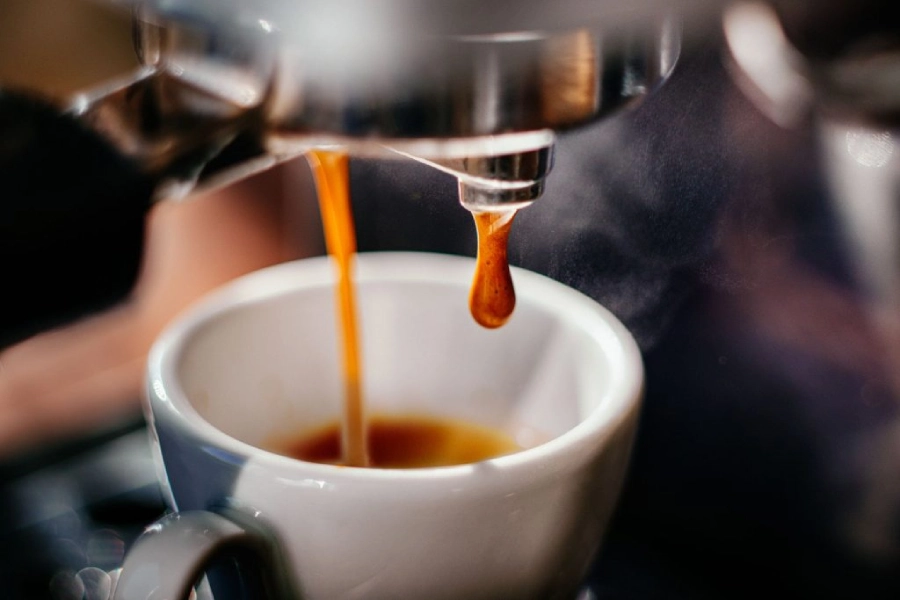
Espresso vs. Regular Coffee: Which Has Higher Caffeine Content?
To help you better understand how much caffeine in 3 shots of Espresso, we will compare the caffeine levels between espresso and regular coffee. Many people think that espresso has a higher caffeine level than regular coffee. However, this depends on a few factors. An ounce of espresso will contain about 63 mg of caffeine, while an ounce of filter coffee only contains about 12 – 16 mg of caffeine.
If you compare a cup of espresso to a regular cup of coffee, the amount of caffeine in regular coffee will be higher. That is because a cup of espresso is only about 1 ounce, equivalent to 63 mg of caffeine. A cup of filter coffee, on the other hand, has roughly 95 mg of caffeine and is about 8 ounces. However, espresso has the characteristic of being consumed quickly and has a strong flavor, so it will have a stronger caffeine effect than regular coffee.
In addition, some variations of espresso such as latte also have higher caffeine than a regular cup of coffee. A 16 oz latte typically uses 2 shots of espresso, which equates to about 126 mg of caffeine.
| Espresso | Filter Coffee | Latte | |
| 1 ounce | 63 mg | 12 – 16 mg | 63 mg |
| 1 cup | 63 mg | 95 mg | 126 mg |
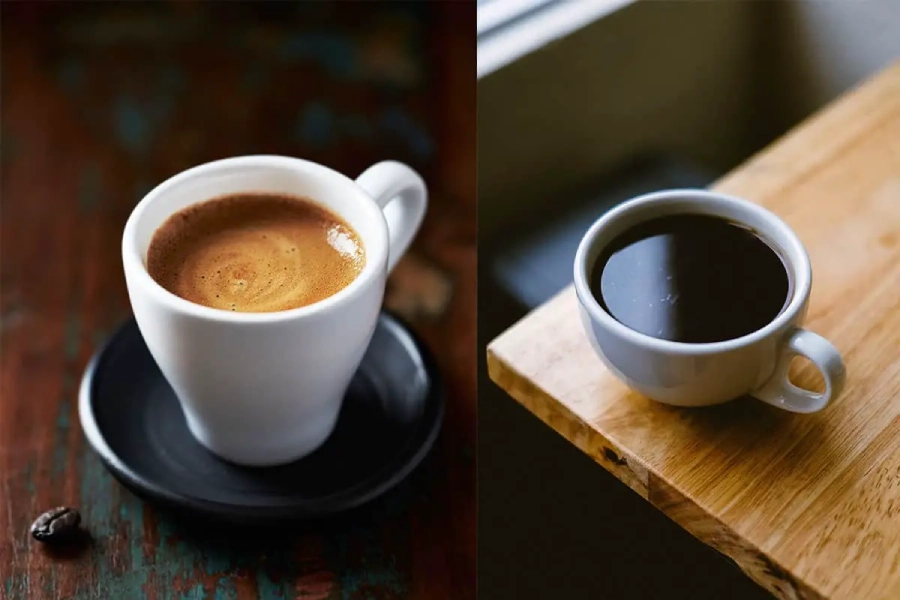
Wrap Up
Hopefully, this article has helped you answer the question of how much caffeine in 3 shots of espresso. The amount of caffeine in espresso will vary, depending on factors such as bean type, roast level, tamping technique, grind size, or water temperature and pressure. In addition, the amount of caffeine in espresso can be more or less than regular coffee under different conditions.
Consuming too much caffeine can cause health effects such as feeling restless, rapid heartbeat, difficulty sleeping, or headaches. Therefore, you can consider the dosage to ensure the amount of caffeine entering the body is safe.
FAQs
Each shot of Starbucks espresso will contain about 75 mg of caffeine. Therefore, 3 shots of Starbucks espresso will be approximately 225 mg of caffeine.
Each shot of espresso will contain around 63 mg of caffeine depending on several conditions. Consequently, four espresso shots will have about 252 mg of caffeine. However, this is only a rough estimate as the caffeine content depends on many other factors.
No. The FDA’s recommended daily caffeine intake is about 400 mg for adults, which is about 6-7 shots of espresso. However, pregnant women, children, or people with certain health conditions should limit their caffeine intake.



